Usame Zukorlić, a young Bosniak leader from Sandžak, has achieved an extraordinary diplomatic and political breakthrough on the international stage in just a few years

Although he comes from a small region that has been economically and politically marginalized for decades, Zukorlić managed, through his personal engagement and predispositions, to swiftly build a network of ties with key actors in the Islamic world.
As the son of the prominent mufti and politician Muamer Zukorlić, Usame took over the leadership of the Justice and Reconciliation Party (SPP) at the end of 2021 and soon established himself as the leading political figure among Sandžak Bosniaks. His ability to use personal connections, knowledge of languages (he speaks Arabic and English), and strategic partnership with Serbia’s state leadership enabled him to build strong international contacts “out of nothing.”
Relations with Turkey and President Erdoğan
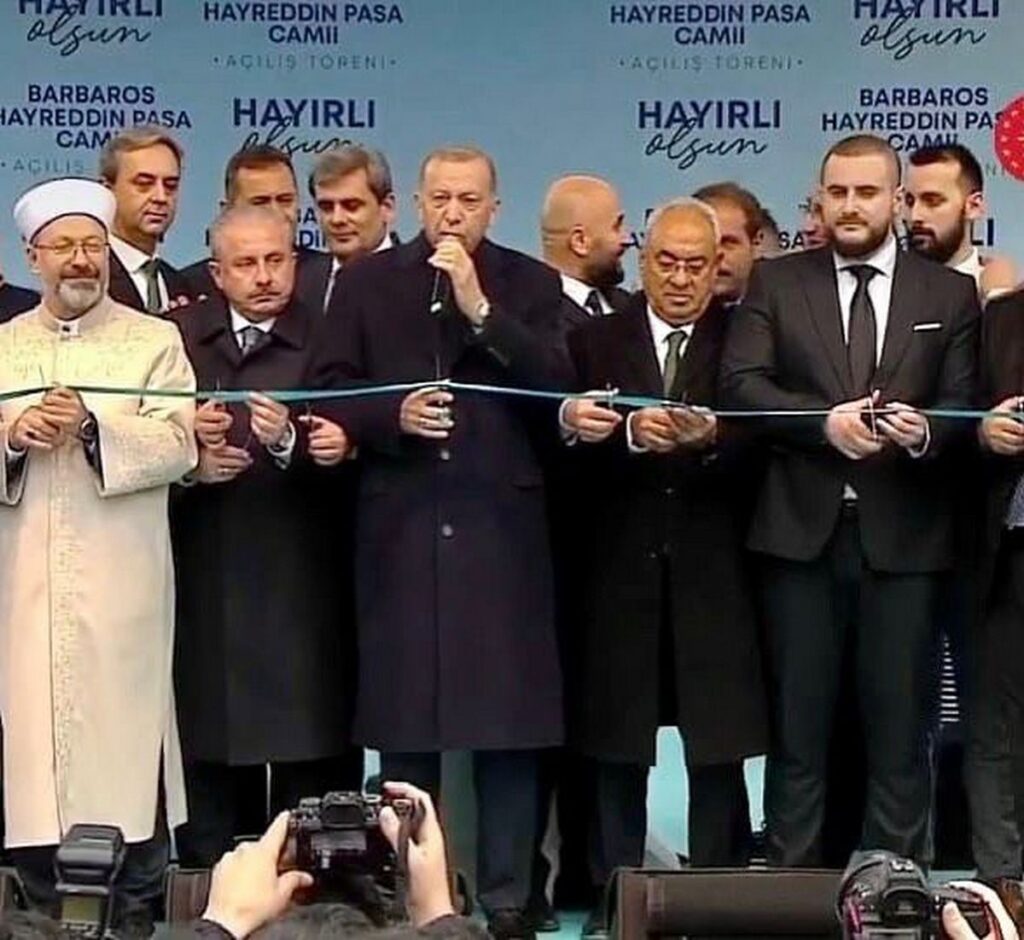
Zukorlić’s relationship with Turkey, especially with President Recep Tayyip Erdoğan and the ruling AK Party, represents the backbone of his international breakthrough. This relationship is characterized by intensive institutional cooperation and personal respect.
The culmination came in September 2025, when an SPP delegation led by Usame Zukorlić visited Ankara and signed a historic Memorandum of Cooperation with Erdoğan’s Justice and Development Party (AK Party). Signed under Erdoğan’s direct authorization with AK Party vice president Zafer Sırakaya, the agreement made SPP the first Bosniak party with this level of cooperation with the AK Party, and only the eighteenth party in the world to establish a formal alliance with Turkey’s ruling party.
On that occasion, Zukorlić stressed that Bosniaks and Turks have been “brotherly peoples for a long historical period,” and that this partnership marks a turning point, leaving behind a turbulent past and opening a new chapter of development, peace, and cooperation. As a symbol of friendship, Zukorlić presented the AK Party’s library with the book Ancient Bosnia in memory of his late father, Mufti Muamer Zukorlić.
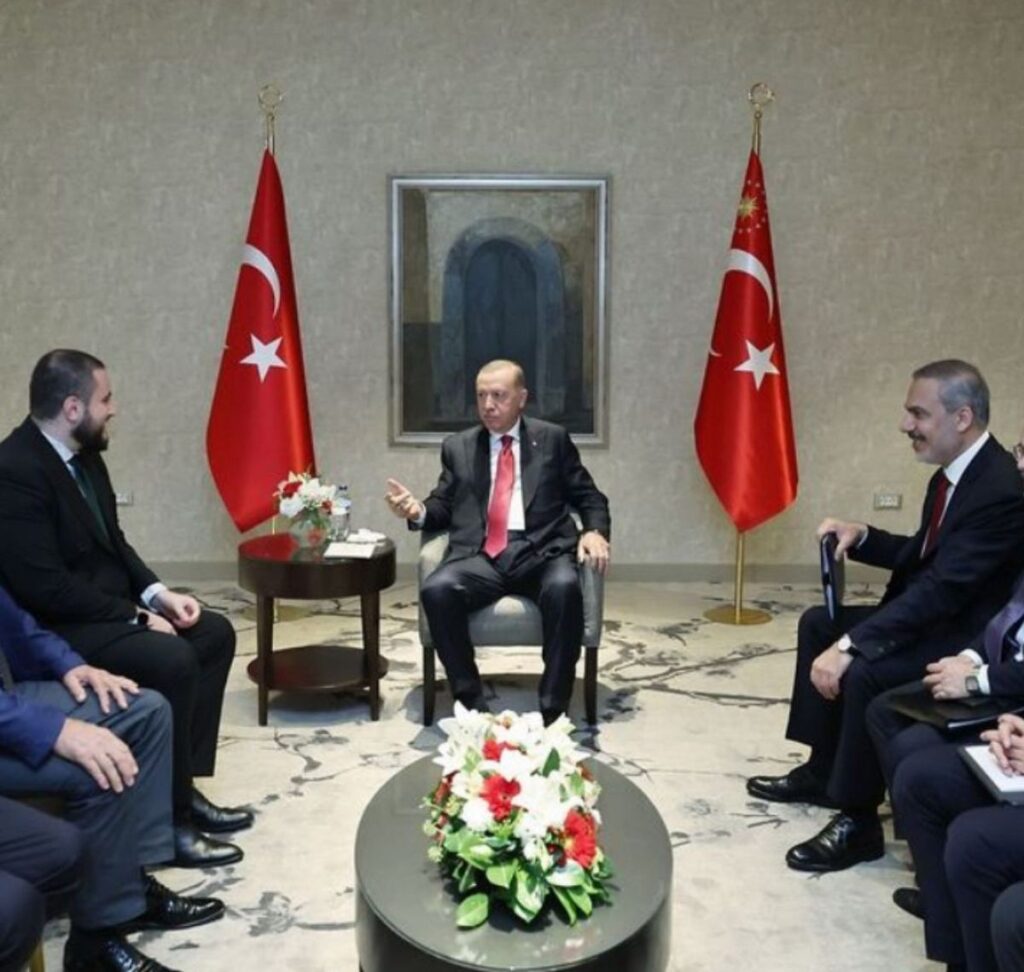
This institutional support from Ankara followed Zukorlić’s gradual building of trust with Turkey’s state leadership after a long period of cold and turbulent relations. Since May 2024, as Minister in the Serbian Government responsible for reconciliation and regional cooperation, he participated in several high-level meetings.
In October 2024, he attended for the first time a joint meeting of President Erdoğan with Sandžak Bosniak leaders, sitting at the same table alongside long-time rivals Sulejman Ugljanin and Rasim Ljajić. That meeting marked the end of SPP’s isolation from Turkish official circles. Zukorlić pointed out that for years his party had been “smeared” and unjustly portrayed as an opponent of Turkey, which is why they had previously not been invited to such gatherings.
However, his entry into the Serbian Government changed the situation: in front of his Sandžak colleagues, Erdoğan congratulated him on his ministerial appointment, stating, “See that Usame has become a minister,” and instructed Ugljanin and Ljajić to “cooperate” with Zukorlić on local issues. This public gesture by the Turkish president effectively legitimized Zukorlić as the main interlocutor for Sandžak, giving him both honor and obligation to justify the trust shown.
Zukorlić’s personal respect for Erdoğan and Turkey has been clearly expressed in his public appearances. He has repeatedly praised Erdoğan’s leadership on the global stage, highlighting Turkey’s role as a protector of the oppressed. In an interview during his recent visit to Ankara, Zukorlić emphasized that “the strong leadership demonstrated by Turkey and President Erdoğan” plays a crucial role in halting injustices, referring particularly to crisis hotspots such as Palestine.
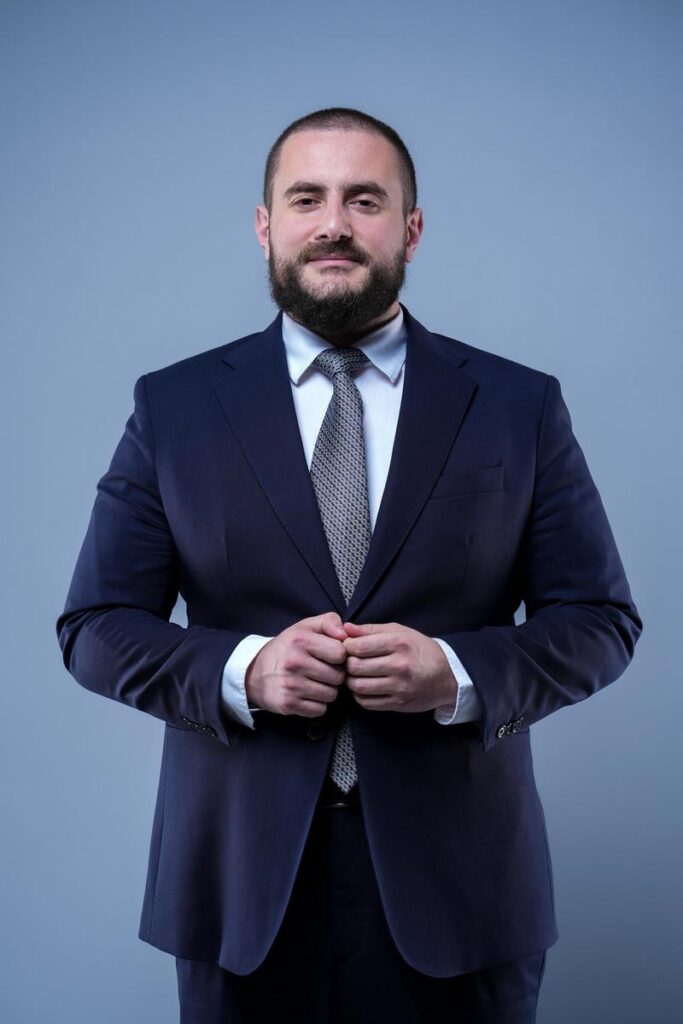
Throughout 2025, Zukorlić intensified institutional contacts with the Turkish state. In March 2025, he spoke in Edirne at a meeting hosted by Turkish Vice President Cevdet Yılmaz for religious and political leaders of the Balkans.
On that occasion, Zukorlić expressed, in his own name and in the name of Serbia, “deep respect for the Turkish people and President Erdoğan,” as well as the desire for even stronger cooperation between Turkey and Serbia.
The meeting unfolded in the spirit of dialogue and mutual support, with special emphasis on the role of religious leaders in promoting peace and stability in the region. Furthermore, during his September 2025 visit to Ankara, Zukorlić met with Turkish Foreign Minister Hakan Fidan, further strengthening ties with the top of Turkey’s diplomacy. All this testifies that Zukorlić has built a close relationship with Turkey based on ideological affinity, personal contacts, and formal agreements—an unprecedented achievement for a politician from Sandžak in recent history.
Ties with Arab States
In parallel with deepening Turkish ties, Usame Zukorlić launched diplomatic initiatives across the Islamic world, focusing on the Middle East. His strategy included strengthening relations with influential Arab states such as Qatar, re-establishing communication with war-torn Syria, and actively advocating for the Palestinian cause on the international stage.
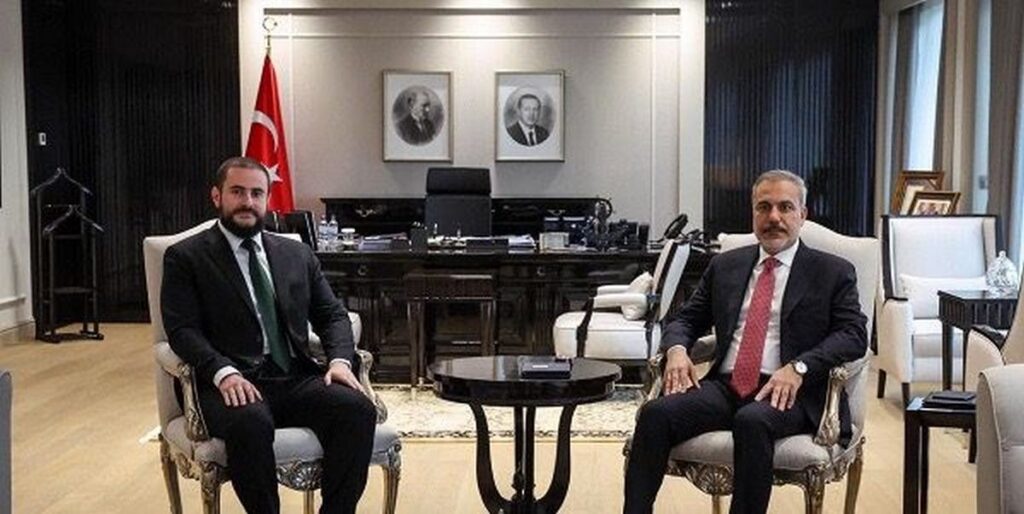
As a young leader from the Muslim community, Zukorlić recognized the significance of Qatar, a country that has established itself as a global investor and mediator in conflicts. In May 2025, he attended the 5th Qatar Economic Forum in Doha, a prestigious gathering of world leaders, investors, and experts. On that occasion, he met Qatar’s Emir Sheikh Tamim bin Hamad Al-Thani during a formal gala dinner. This meeting with one of the most influential Arab leaders marked a major personal step forward for Zukorlić. In an official statement, he expressed admiration for the Qatari leadership’s vision, saying: “When a geographically small country has a wise leader, it can become a beacon of justice.”
He praised Qatar for achieving this “through courageous diplomacy and major investments, especially in knowledge,” adding that he was proud to have had the honor of meeting the Emir, whom he described as “a great statesman.” These compliments indicated a conscious effort to build close ties, as Zukorlić sought to win Qatar’s favor by highlighting shared values and visions of development. His presence in Doha also enabled him to network with other senior officials from various states on the sidelines of the forum, thereby expanding his diplomatic reach.
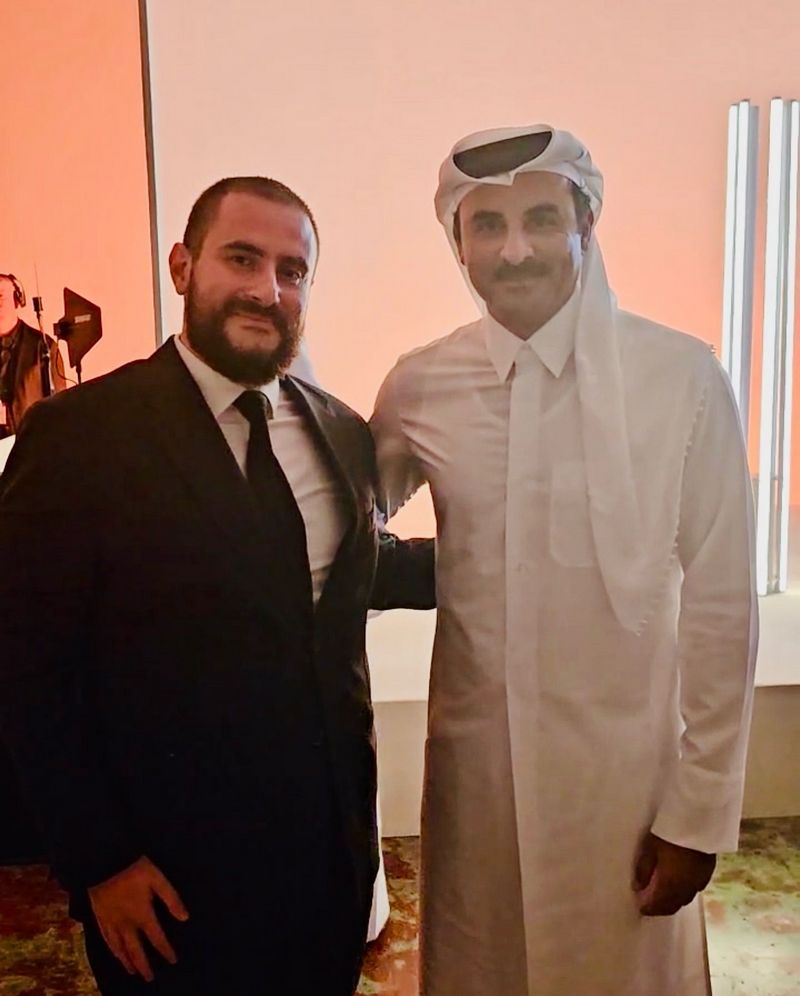
One of Zukorlić’s most significant undertakings in the Middle East was leading a Serbian delegation to Damascus in June 2025, in an effort to restore ties with Syria after years of civil war. As Minister responsible for reconciliation and regional cooperation, he initiated this move in coordination with Serbia’s leadership. In Damascus, he held talks with Syria’s highest officials, meeting President Ahmed al-Sharaa and Foreign Minister Asaad Al-Shaibani.
Both sides expressed readiness to renew and strengthen bilateral cooperation between Serbia and Syria. Zukorlić emphasized the importance of continuous political dialogue and presented concrete models for how Serbia could contribute to Syria’s reconstruction—especially in infrastructure, education, healthcare, and the economy.
He personally delivered a letter from the Serbian president to his Syrian counterpart, conveying key messages of goodwill and readiness to deepen bilateral relations. This gesture positioned Zukorlić as an emissary of Serbia, giving him institutional weight in the eyes of Syrian authorities.
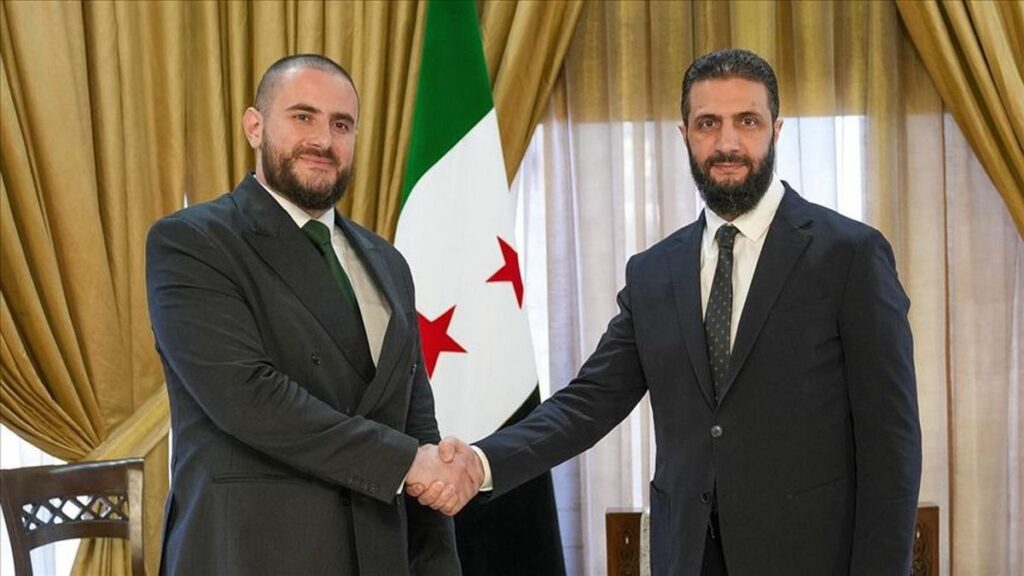
From Damascus, Zukorlić sent strong symbolic messages. In a social media post picked up by the press, he praised the resilience of the Syrian people, declaring: “Syria today gives hope to the entire ummah and the free world precisely because, despite all trials, it has neither collapsed nor fallen into fratricidal war after the overthrow of dictatorship.”
He expressed satisfaction with his talks with the Syrian leader, stressing that new diplomatic relations had been established between the two countries to the benefit of both peoples. He was particularly struck by the Syrian leader’s “sincere, brotherly interest” in the situation of Muslims in Serbia and the region. On behalf of Serbia, he offered support for Syria’s reconstruction and stabilization through institutional cooperation and concrete projects, emphasizing the importance of dialogue, solidarity, and mutual respect in times of global challenges.
Damascus warmly welcomed him, with Syrian officials underscoring their openness to partnership with Serbia based on mutual respect, exchange of experience, and joint development. This visit was assessed as a significant step in Zukorlić’s international engagement in building bridges of cooperation and trust in the Middle East. Thus, a politician from small Sandžak played an unexpected role in renewing Serbian-Syrian relations, demonstrating the breadth of his diplomatic potential.
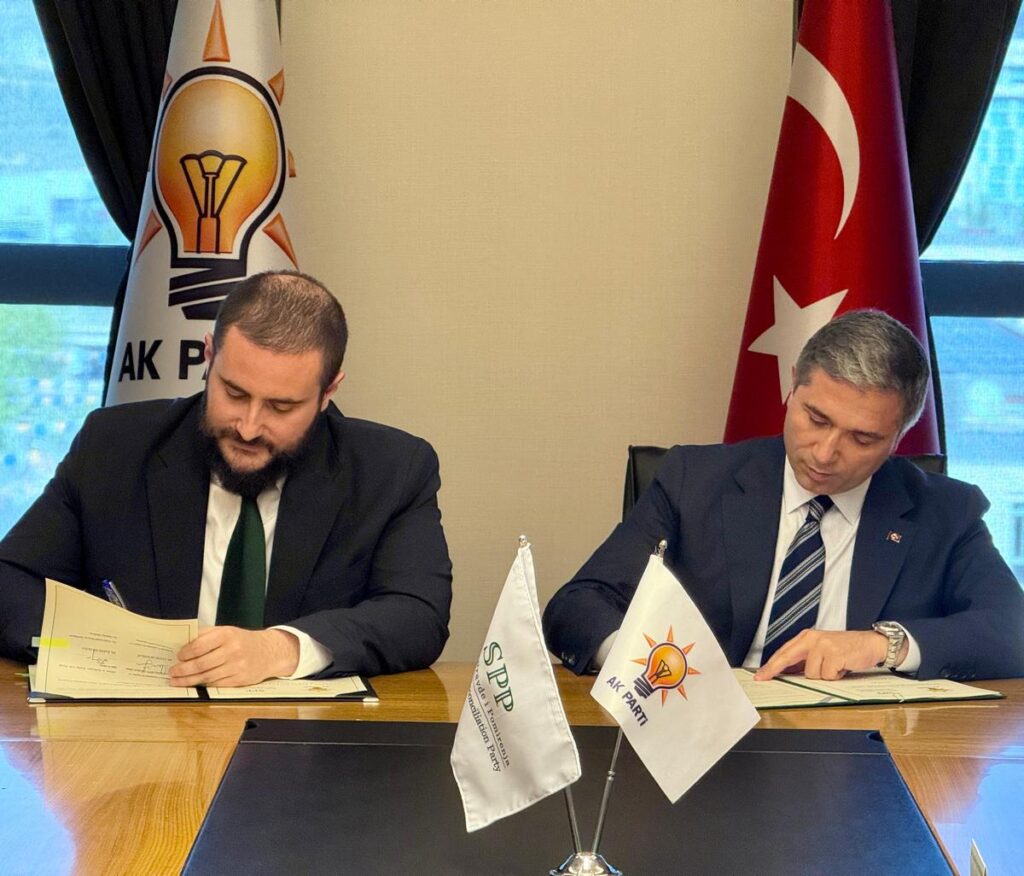
The Palestinian question holds a central place in Zukorlić’s international discourse, which is unsurprising given his family background—his mother is Palestinian. In 2023 and 2024, he established personal contacts with Palestine and publicly voiced support for the Palestinian people. As he revealed, at the beginning of 2025 he visited Jerusalem, Bethlehem, Hebron, and even areas near the Gaza border. This tour of holy sites and conversations with locals left a deep impression on him. Describing what he saw, he said the scale of horror in Gaza is almost beyond comprehension: “What I witnessed was already a reflection of genocide. An enormous number of women and children lose their lives daily, and the delivery of humanitarian aid is nearly impossible.” These testimonies gave him moral legitimacy to later speak as a voice of solidarity with Palestinians.
During his stay in Ankara in September 2025, Zukorlić made his strongest statements condemning Israeli actions in Gaza. He urged global actors to “do everything in their power” to stop the horror, warning that if nothing is done, “we will all bear the consequences.” Zukorlić welcomed Serbia’s earlier recognition of the State of Palestine and stressed that Palestinians, like all nations, have the right to life and dignity. He also observed that Muslim countries are uniting in the search for a solution to the Gaza crisis, reiterating that the attack on Gaza is a global threat that must be countered together.
More broadly, Zukorlić has also established communication with other parts of the Islamic world. He actively maintained contacts with the Bosniak diaspora and regional religious leaders, built ties with international Islamic organizations, and participated in gatherings where he represented the voice of Muslims from Serbia. Naturally, this approach carries risks: balancing the politics of Serbia as a secular state with his Islamic allies requires diplomatic skill and caution so as not to undermine trust on either side.
From Local Politician to Global Actor
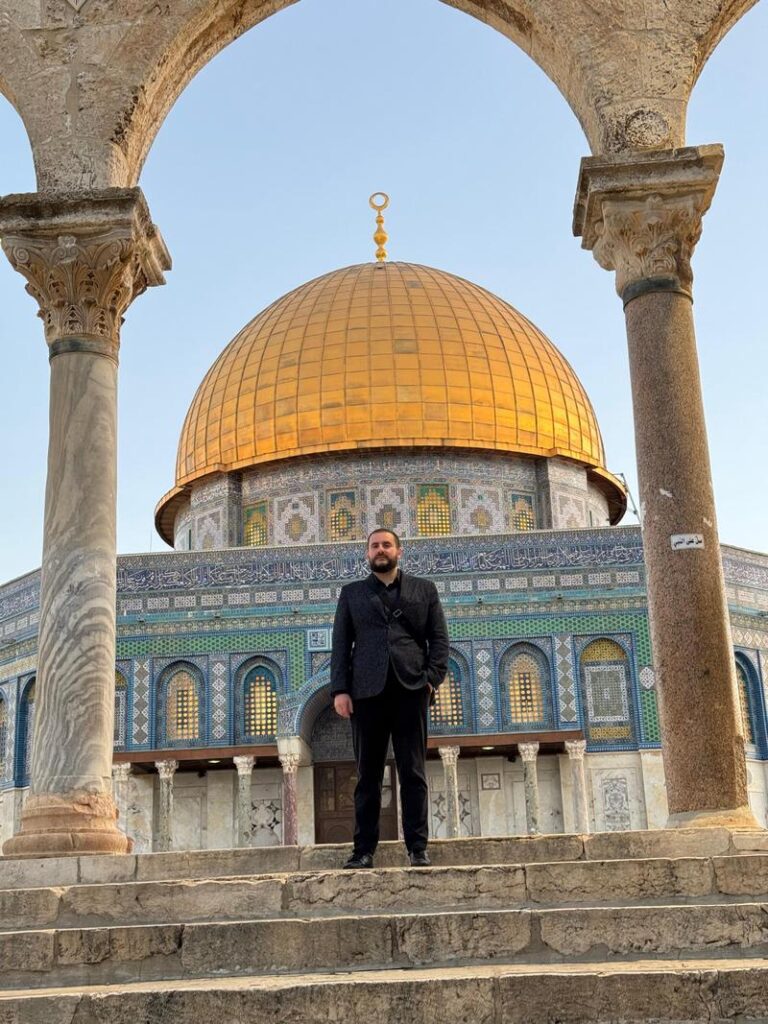
Zukorlić’s rise from a local Sandžak politician to an actor on the international stage is the result of a carefully thought-out approach and an unconventional blending of identities. Starting from Sandžak, a peripheral region with a Bosniak majority long on the margins of state politics, Zukorlić managed to exploit a set of comparative advantages that few before him recognized or used.
First and foremost, there is his specific identity and background: raised within Sandžak’s Islamic community, with a father, Mufti Muamer, who had contacts in the Islamic world, and a Palestinian mother who instilled in him an emotional connection to the Middle East. This multinational pedigree enabled him to feel at home in Belgrade, Ankara, and Arab capitals alike—a skill few previous Sandžak leaders could boast.
Second, Zukorlić strategically used his position in Serbia to gain international credibility. SPP’s entry into coalition with the ruling Serbian Progressive Party and his appointment as minister gave him access to state resources: traveling under the national flag, mandates to represent Serbia on specific missions, and visibility in diplomatic circles. He used this opportunity far beyond the expectations of a minister without portfolio.
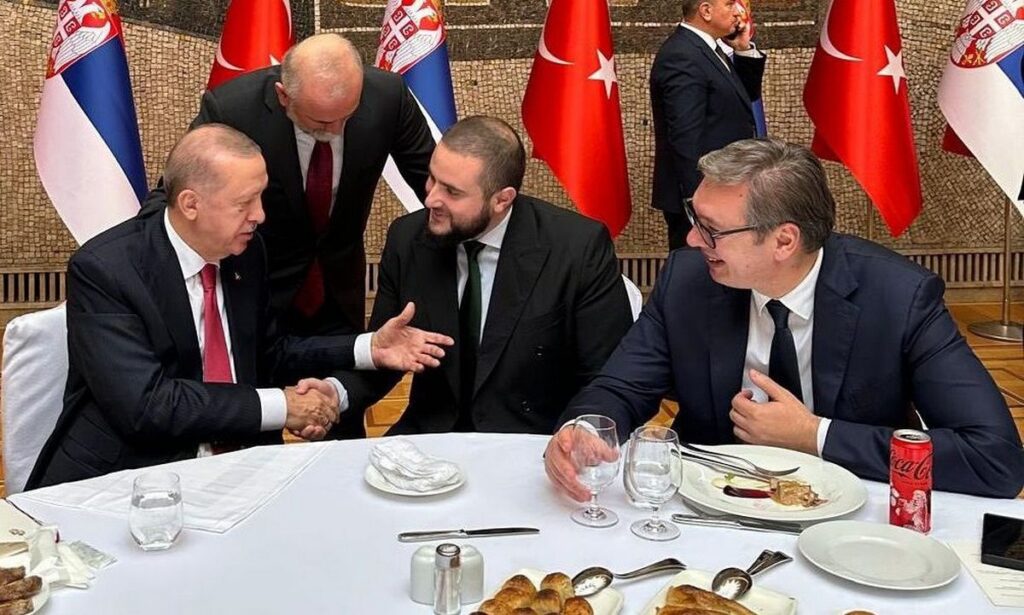
While similar officials are often limited to domestic issues, Zukorlić projected his “reconciliation and regional cooperation” portfolio globally, establishing himself as Serbia’s informal ambassador to the Islamic world. In doing so, he strengthened his own profile while also benefiting the government in Belgrade, which through him built bridges to Ankara, Doha, and Damascus.
The third key element is ideological and value-based positioning. Zukorlić deliberately branded himself as an advocate of justice, dialogue, and multiculturalism, reflected in both his party’s name (Justice and Reconciliation) and in his public messages. On the international stage, he presents himself as the voice of moderate European Muslims, willing to cooperate but also determined to defend the oppressed (Palestinians, Syrians, Muslim minorities). This positioning made him a desirable interlocutor for countries like Turkey and Qatar, which seek to act as patrons of Muslims worldwide. His statements praising Qatar’s “courageous diplomacy” or Turkey’s “strong leadership” were not mere flattery but partly reflections of genuine conviction and partly carefully crafted signs of loyalty that opened doors to halls of power in Ankara and Doha.
Finally, Zukorlić has demonstrated personal diplomatic initiative and skill. His performance on the international stage combines both formal and informal approaches: on the one hand, forging formal alliances (such as the memorandum with the AK Party—a unique move among Balkan politicians), and on the other, building personal relationships, from cordial meetings with leaders (like Erdoğan and the Emir of Qatar) to maintaining contact through social media, where he regularly posts photos and messages with his counterparts. This dual strategy generates both institutional trust and friendly closeness.

His youth and energy are also a factor: in a diplomatic world dominated by older career politicians, Zukorlić brings freshness and enthusiasm, which at times more easily capture media and public attention (for example, his emotional narrative about his Palestinian mother was widely reported).
Of course, this “diplomatic breakthrough out of nothing” has not come without challenges. At home, Zukorlić has had to face skepticism, with some rivals in Sandžak and Serbia dismissing his international contacts as mere marketing. Abroad, he has had to navigate complex geopolitical games. So far, he has avoided major missteps by sticking to broadly accepted topics (Palestine, development, dialogue) and steering clear of polarizing conflicts within the Muslim world.

Usame Zukorlić represents a rarity on the political scene of the Western Balkans: a leader of a small Bosniak-Sandžak community who has become a relevant figure in international affairs. Through personal engagement and vision, he has managed to put Sandžak—one of Serbia’s poorest and most politically forgotten regions—on the diplomatic map. The key to his success lies in the combination of authenticity and pragmatism: he acts simultaneously as a proud representative of his people and as a flexible statesman open to cooperation. Through partnership with Turkey and Erdoğan, building trust with Arab leaders such as the Emir of Qatar, and actively championing global Muslim causes, Zukorlić has built a network of contacts once unimaginable for a politician from Novi Pazar.
His example shows that with the right strategy and personal initiative, it is possible to overcome the limitations of one’s environment: from the periphery, one can become a bridge between civilizations. However, it remains to be seen whether Zukorlić can translate this international capital into tangible benefits for his homeland—investments, infrastructure projects, or cultural exchange.
The future will also show whether his model is sustainable in the long term, and whether he will leave behind institutions capable of continuing these ties once he is no longer in office. For now, however, Zukorlić’s diplomatic breakthrough remains an impressive case study of how personal leadership can pave the way for a community to global partners—even “out of nothing,” from small Sandžak at the crossroads of the Balkan.